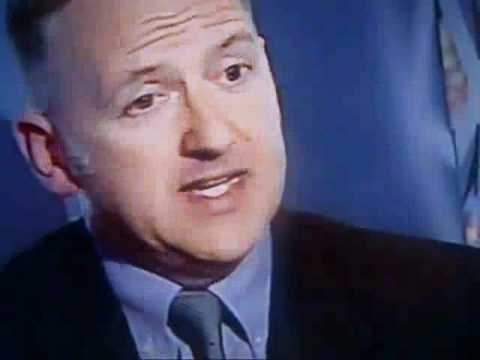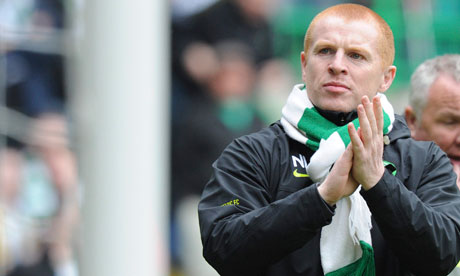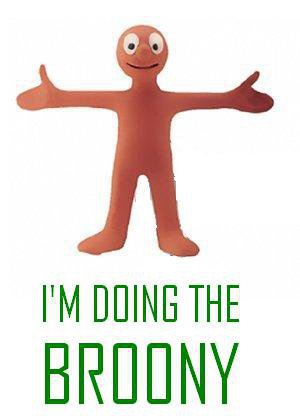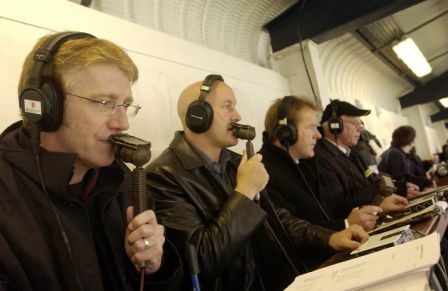But, before going any further, I’d like to lay my cards on the table by saying that I don’t sing Boys of the Old Brigade at games, and I would be very happy if it was never sung at Celtic matches ever again. However, Celtic supporters have the right to sing it at games, as we have the right not to sing it. Hopefully in future the latter is the right that we’ll exercise. This debate is an important one for the whole of Scottish society, but we cannot let ignorance and obfuscation rule it, as BBC Scotland have shown that they want to do. If you complained the first time and received their reply, I urge you not to accept it. Complain again, it’s your duty. If you did not complain, but saw Kieran’s “Don’t Let The BBC Lies Lie” post and letter, then read on to see sections of the ill-fitting reply that the BBC gave him, and me, and hundreds of others.
This is my follow up complaint to the response I received on 9th June 2010, which I found to be unsatisfactory. Using material from this reply I would like to show how poor a response this was in light of the points I raised and the wider issues involved.
At the half time interval of our live television broadcast of this year’s Scottish Cup Final the presenter and one of the guests briefly mentioned that sectarian singing had been heard coming from a minority of Celtic fans.
This statement is false. It was not brief, nor did they say “minority”. The presenter said “the Celtic fans”. You are attempting here to delegitimize the extent of this slur.
Given the incidents of recent weeks, and taking into account the statement by Neil Lennon posted on the club’s official website just days before the Final, it was editorially appropriate to include this short discussion.
Although not relevant to my complaint, you mention that this discussion was “editorially appropriate” in light of Celtic manager Neil Lennon’s statement on Celtic’s official website. Neil Lennon’s statement used the key phrase “In recent times, unfortunately there has been a re-emergence from a small minority, of some of the singing and chanting which is simply not acceptable around our club.” He does not refer to sectarianism because the problem he is dealing with is not a sectarian problem. Rather, it is a problem of songs relating to Irish political history, which Celtic FC sees as unsuitable to be sung at their games. This may be due to the fact that they are deemed ‘offensive’ by certain factions of society. Their being ‘offensive’ is not the same as their being ‘sectarian’. In my original complaint, I asked if you could identify the chant(s) which were deemed sectarian by BBC Scotland. You have failed to deal with this key point. If your representatives were indeed “taking into account” what the Celtic manager said regarding particular songs, the word ‘sectarian’ would not and should not have been used whatsoever. This is a problem of inaccuracy, which you have failed to atone for. However, it is also a problem of selective reporting. If this short discussion was “editorially appropriate” due to the incidents of recent weeks, then in a season littered with incidents of appalling sectarian violence against representatives and supporters of Celtic Football Club, for what reason was this the sole occasion that fan behaviour was highlighted? There were several occasions throughout the 2010/2011 where the BBC could have drawn attention to actual sectarian, racist and bigoted singing. I am referring here to songs which to sing in this country has been deemed an offence aggravated by religious prejudice. Celtic FC has no such songs and has a clean record in this regard with the Scottish Legal system, UEFA and the SFA. Rather than highlight the fact that the aforementioned illegal songs were being sung with impunity on numerous occasions, the BBC chose instead to highlight in a high-profile and definitive manner the actions of the fans of one club, on one occasion as being sectarian under utterly false pretences.
Sectarianism and associated behaviours have been the topic of much comment this season and five editions of Sportscene in April and May took time to debate the issue in relation to the general problem and to specific incidents such as the sending of parcel bombs and the fining of Rangers FC by UEFA.
In a further muddying of the water, you refer to “sectarianism and associated behaviours”. Although I am not certain of what “associated behaviours” of sectarianism would be, I would imagine that they are racism, religious prejudice and religious triumphalism. If you are implying that although the Celtic support didn’t engage in sectarianism, they engaged in an associated behaviour of sectarianism, could you please point out what you believe that to be?
Although completely irrelevant to the points I raised in my complaint, you mention Rangers FC and their particular problems with sectarianism and subsequent punishments. This is enlightening in itself as it highlights the willingness to put Celtic into the same ‘sectarian’ bracket. Perhaps the fact that Rangers FC had recently had another UEFA sanction added to their long lists of punishments caused the BBC Scotland sports team to seize the opportunity to drag Celtic down to this debate with them. One can only speculate why this would be the case. Due to the fact that these comments were based on the testimony of “those outside hearing the songs being sung” and also the ample time devoted to discussing the subject, it was clear that this item had been encouraged and approved by someone in the production team. In my initial complaint I said “the BBC is supposed to stand for an independent, balanced, unbiased and critical search for truth. This outburst was the epitome of simple-minded sensationalism and agenda driven propaganda.” I still firmly believe the latter statement to be the case, if not the former. However, your generic reply has led me to believe that this particular agenda is something that BBC Scotland is very willing to stand by and defend.
There is a continuing debate around the definition of “sectarian” and we accept that it would have been more accurate for our presenter to refer to “songs that some people believe to be an expression of sectarianism but which many people nonetheless find both offensive and provocative”.
The convoluted sentence that you suggest would have been more accurate is, frankly, laughable. I was not aware that the BBC’s view on the problem of sectarianism in Scotland was based on what “some people believe”. Your claim that the definition of the word “sectarian” is in flux is both dangerous and offensive. Would a representative of your corporation be as confident to say “there is a continuing debate around the definition of ‘racism’”? The definition of “sectarian” is not up for debate here. The definition of “sectarianism” is ‘something of or pertaining to a sect or narrowly confined and devoted to a sect.’ It would have been more accurate for your presenter to refer to “songs which some people find offensive” or to “offensive chanting”.
There is no doubt that the issue of sectarianism in Scotland has moved into a new phase since the events of April and May, with the First Minister asserting that tackling it in all its forms will be a priority for the new government.
Although completely irrelevant to my complaint, you affirm that the issue of sectarianism in Scotland has moved into a new phase and that tackling it is a priority for the new government. I can only hope that unlike BBC Scotland, the Scottish government isn’t so cowardly as to not be able to attempt to define what sectarianism actually is.
BBC Scotland will continue to report on this and all other areas of public interest and debate in a fair and balanced manner over time. We can also assure you that your concerns have been registered on our audience log; this is a daily report of audience feedback that’s made available to many BBC staff, including members of the BBC Executive Board, channel controllers and other senior managers.
This is an extremely disappointing and unsatisfactory answer. I cannot accept that the incident in question was handled in a fair and balanced manner, nor has your reply to my complaint. The points I raised have not been dealt with at all, and absolutely no remorse has been shown for what was a very serious allegation made falsely live on air. Further, you have attempted to play down the seriousness of this incident with more false information, while attempting to obscure the issue by claiming that what is and isn’t ‘sectarian’ is somehow up for debate. The incident was inflammatory in itself, but this generic and bungled reply is even more so.
A full retraction of the claims made by Rob McLean and Pat Nevin as well as an apology for sullying the name of Celtic FC and its supporters is the only acceptable action from the BBC. I am willing to take this complaint as far as is within my power.
Yours sincerely,




